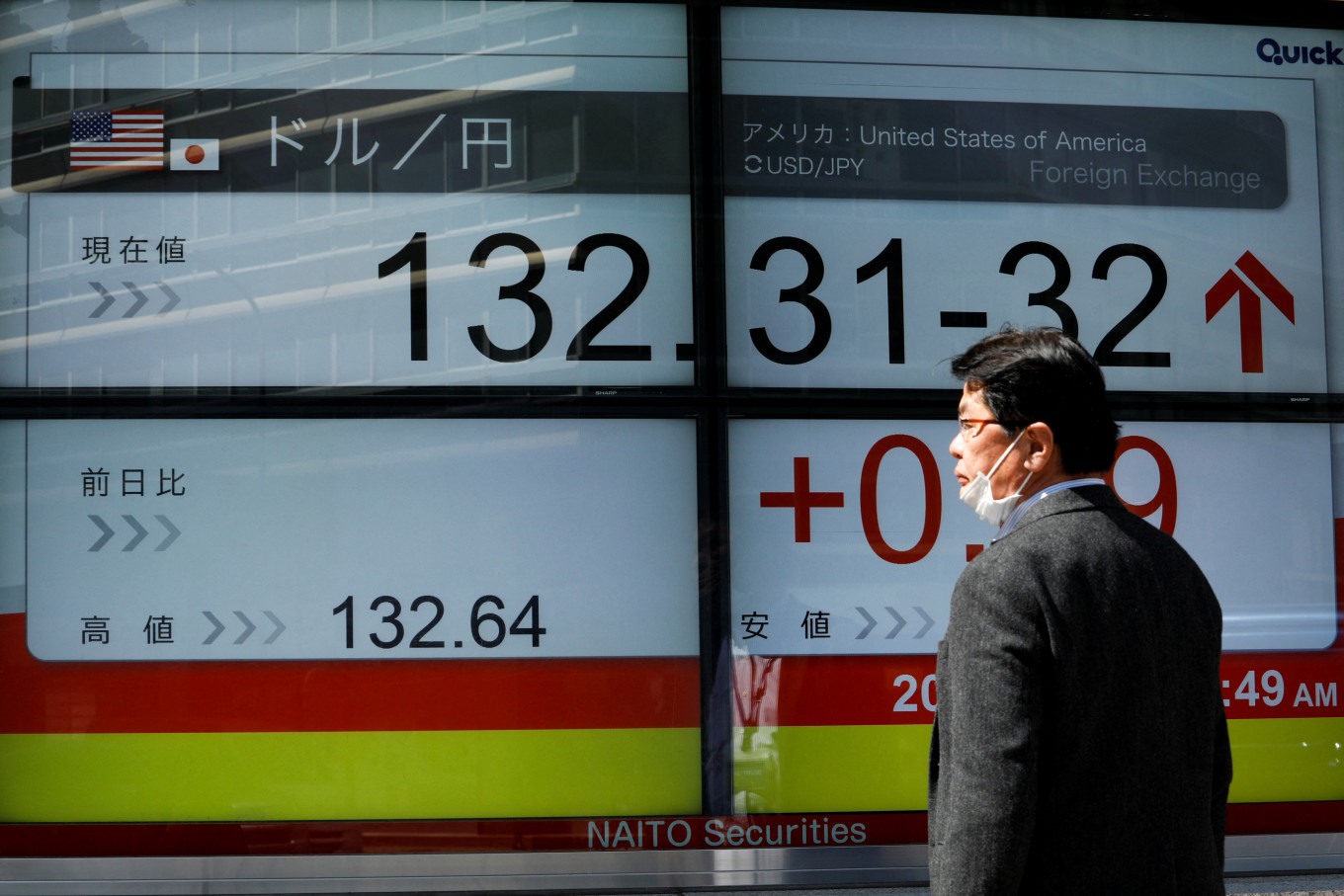Popular Reads
Top Results
Can't find what you're looking for?
View all search resultsPopular Reads
Top Results
Can't find what you're looking for?
View all search resultsLess dependent on the dollar
Governments and central banks across the world have scrambled to stabilize their currencies and shield their economies from a series of United States Federal Reserve (Fed) rapid interest rate increases.
Change text size
Gift Premium Articles
to Anyone
T
he 10 members of ASEAN along with China, Japan and South Korea, or ASEAN Plus Three (AP3), have recently signed an agreement to use local currency settlement (LCS) in intra-regional trade. The agreement is the expansion of a framework that has been developed and implemented by Indonesia, Thailand, Malaysia and the Philippines since 2017.
Under the AP3 agreement, the countries will have a task force that will help them transition from using international currencies, which are still dominated by the dollar, to local currencies in financial transactions.
The move follows the global trend of reducing the use of the dollar in cross-border transactions and central bank reserves, also known as “de-dollarization”. Governments and central banks across the world have scrambled to stabilize their currencies and shield their economies from a series of United States Federal Reserve (Fed) rapid interest rate increases that have strengthened the greenback. One of the best ways to do so is to offload the dollar in their transactions.
Moving away from the dollar was almost unthinkable a decade ago as Southeast Asia was still dependent on trade and investment transactions with the US. The dollar was not used only for trade with the US, but also other countries in the region. The dollar has played the role of a vessel currency in the region because of its stability, liquidity and low transaction costs.
But ASEAN countries have been resilient and continued to blossom. Indonesia, Vietnam, Malaysia and the Philippines have come back strongly from the COVID-induced economic crisis as their GDP rose above inflation last year. Economists have attributed the resilience to the fact that as food-producing economies that have become the world’s barns for various crops, from rice to palm oil, the countries have benefited from growth in domestic production and strong trade relations in the region. With the growing influence of China, South Korea and Japan in regional trade, these Asian countries have been less dependent on the US.
In November, five ASEAN countries, Indonesia, Thailand, Malaysia, Singapore and the Philippines, signed an agreement on crossborder payment during the Group of 20 Summit in Bali. The agreement includes the implementation of QR code, fast payment, data, real-time gross settlement systems (RTGS) and local currency transactions. Following the successful implementation in Thailand, Indonesia recently completed the process to establish Bank Indonesia’s (BI) Quick Response Indonesia Standard (QRIS) to make payments in Malaysia.
While relying on local currencies and intraregional trade may seem safer amid the global uncertainty at the moment, replacing the US dollar should not be the goal of ASEAN’s economic integration. Deeper intraregional economic cooperation should not come at the cost of economic relations with the US and countries from other continents.
Amid current geopolitical tensions resulting from the US-China rivalry, ASEAN’s trade and economic integration should strengthen trade and economic growth within the region and beyond.
Stronger economic integration should bring prosperity not only to Southeast Asia or Asia, but also to other continents across the globe. Of course, it always takes two to tango. ASEAN will not be able to propel the world’s economic growth if it has to face economic hostility or trade restrictions from other countries.
ASEAN’s move for deeper intraregional trade and economic integration is more like a response to the volatility stemming from the dollar’s invincibility. There is no need for ASEAN countries to circumvent the dollar if the Fed ceases its aggressive interest rate campaign and makes the dollar less powerful than other currencies. Aggressive monetary or trade policies from a major economy like the US will prompt other countries to adjust and fight for the survival of their own.
While individual ASEAN countries may be less powerful, together they may become a force to reckon with.











